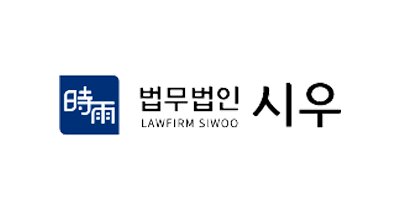Best Bail Bond Service Lawyers in Yeonje-gu
Share your needs with us, get contacted by law firms.
Free. Takes 2 min.
List of the best lawyers in Yeonje-gu, South Korea
About Bail Bond Service Law in Yeonje-gu, South Korea
Bail bond service in Yeonje-gu, South Korea, operates within the legal framework set out by national criminal procedure laws. Unlike some countries, South Korea does not have a bail bond industry centered around private bonding companies. Instead, the process focuses on ensuring the accused complies with legal procedures and court appearances. Bail refers to the temporary release of someone awaiting trial, usually after submitting a deposit or surety to the court, providing assurance that they will return for all scheduled legal proceedings. The bail system is administered directly by the courts, with the help and oversight of legal professionals where necessary.
Why You May Need a Lawyer
Seeking legal assistance for bail bond matters in Yeonje-gu can be crucial for several reasons. Individuals facing criminal charges or investigations may not understand the complex legal requirements for granting bail. A lawyer can help by:
- Explaining eligibility for bail and the legal process
- Preparing and submitting bail applications to the court
- Negotiating terms and conditions of bail, such as reporting requirements or travel restrictions
- Appealing bail denials or requesting changes in bail conditions
- Representing clients during hearings
- Ensuring compliance with local and national regulations
- Protecting the rights and interests of the accused or their families
- Advising foreigners or non-Korean speakers unfamiliar with local legal systems
Local Laws Overview
In Yeonje-gu, bail procedure is governed primarily by the Criminal Procedure Act of South Korea. Key points include:
- Bail may be requested during investigations or trial proceedings
- The court evaluates factors such as the risk of flight, potential for evidence tampering, criminal record, and the seriousness of the alleged offense
- Bail is typically secured through a financial deposit or a surety, which may be forfeited if the accused fails to attend court
- In some circumstances, bail could be denied for serious crimes or when there's a strong risk of absconding
- Bail conditions can include regular reporting, restrictions on travel, or prohibitions on contacting victims or witnesses
- Legal counsel is highly recommended, as the process may involve complicated paperwork and thorough background checks
Frequently Asked Questions
What is bail in South Korea?
Bail is the temporary release of an individual accused of a crime before or during their trial, secured by financial or other guarantees, ensuring their appearance at court as required.
Is there a private bail bond industry in Yeonje-gu?
No, private bail bond agents or companies are not part of South Korea's judicial system. Bail is handled directly by the courts in line with legal provisions.
Who is eligible for bail?
Eligibility for bail is judged by the courts, which consider factors like flight risk, criminal history, seriousness of the charge, and likelihood of evidence tampering.
What types of bail are available?
Typically, bail can be granted in the form of a cash deposit, personal surety, or sometimes with property as security. The courts decide which form is appropriate.
Can bail applications be denied?
Yes. Courts may deny bail if there is a high risk of fleeing, danger to society, or if the alleged crime is particularly severe.
How can a lawyer help with the bail process?
A lawyer can assist with explaining your rights, preparing applications, representing you at hearings, appealing denied applications, and ensuring you understand all legal obligations.
What happens if bail conditions are not met?
Failure to meet bail conditions can lead to forfeiture of bail money or property, re-arrest, and further legal penalties.
What are common conditions attached to bail?
Common conditions include reporting to authorities regularly, travel restrictions, and avoiding contact with certain individuals involved in the case.
Is bail possible for foreigners in Yeonje-gu?
Yes, but additional conditions may apply, such as increased financial assurance or stricter reporting, due to the increased flight risk associated with non-residents.
What documents are needed to apply for bail?
Typically, identification documents, proof of residence, financial statements, and court forms are needed. Your lawyer can provide a detailed checklist.
Additional Resources
For those needing more information on bail bond services and legal support in Yeonje-gu, the following resources can be helpful:
- Busan District Court - Jurisdiction over Yeonje-gu legal matters, including bail proceedings
- Yeonje-gu District Office - May direct you to local legal aid services or public attorneys
- Korean Bar Association - Directory of qualified lawyers, including criminal law specialists
- Legal Aid Korea (Korea Legal Aid Corporation) - Assistance for those facing financial hardship
- National Police Agency (Busan branch) - In charge of initial procedures during arrest and investigation
Next Steps
If you or someone you know requires legal assistance concerning a bail bond in Yeonje-gu, South Korea, consider the following steps:
- Consult with a qualified criminal defense lawyer as soon as possible to assess eligibility for bail and begin the application process
- Gather all necessary supporting documents, such as identification and proof of residence or employment
- Attend all scheduled court hearings and follow legal advice carefully to avoid breaching bail conditions
- If bail is denied, discuss possible appeals or alternative legal strategies with your lawyer
- Contact reputable local organizations or governmental bodies for additional help or clarification
Navigating the bail process in Yeonje-gu can be complex, and having proper legal representation ensures your rights are best protected and your case proceeds efficiently.
Lawzana helps you find the best lawyers and law firms in Yeonje-gu through a curated and pre-screened list of qualified legal professionals. Our platform offers rankings and detailed profiles of attorneys and law firms, allowing you to compare based on practice areas, including Bail Bond Service, experience, and client feedback.
Each profile includes a description of the firm's areas of practice, client reviews, team members and partners, year of establishment, spoken languages, office locations, contact information, social media presence, and any published articles or resources. Most firms on our platform speak English and are experienced in both local and international legal matters.
Get a quote from top-rated law firms in Yeonje-gu, South Korea — quickly, securely, and without unnecessary hassle.
Disclaimer:
The information provided on this page is for general informational purposes only and does not constitute legal advice. While we strive to ensure the accuracy and relevance of the content, legal information may change over time, and interpretations of the law can vary. You should always consult with a qualified legal professional for advice specific to your situation.
We disclaim all liability for actions taken or not taken based on the content of this page. If you believe any information is incorrect or outdated, please contact us, and we will review and update it where appropriate.










